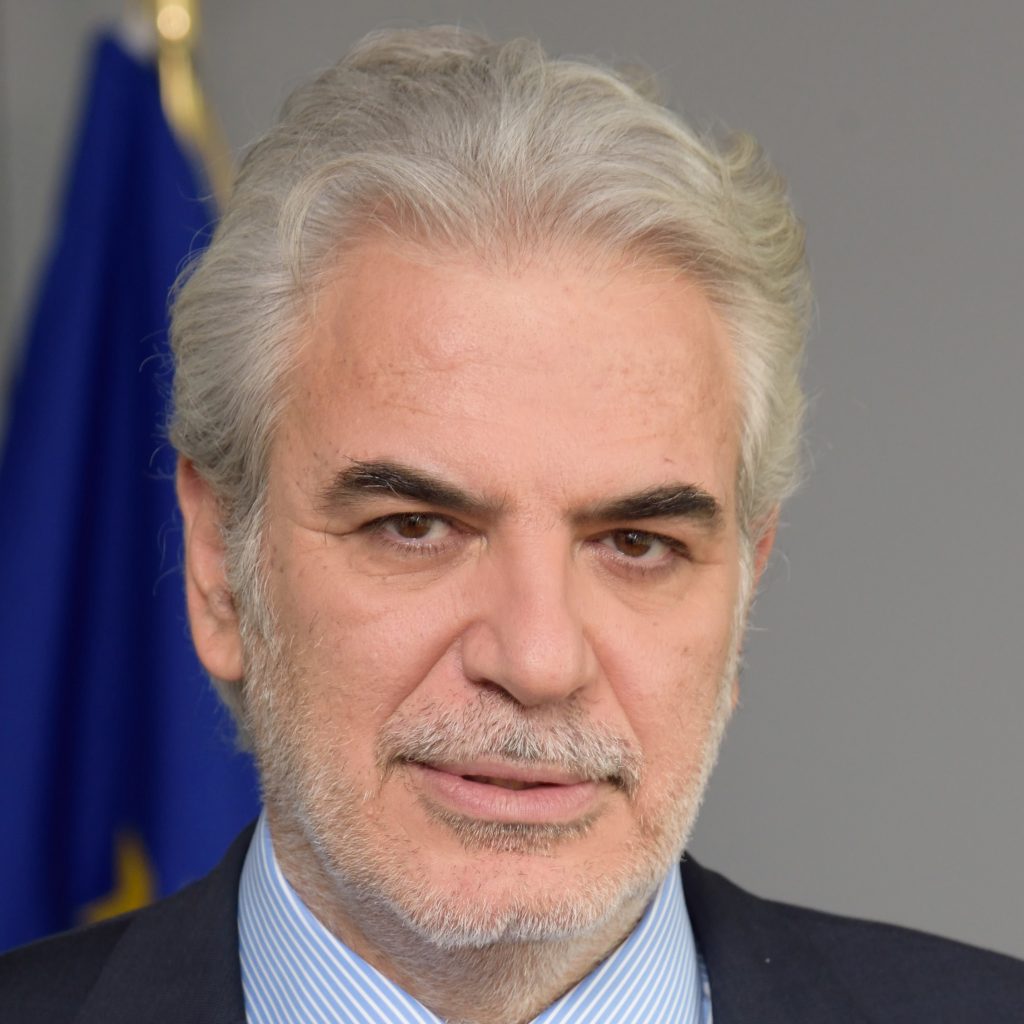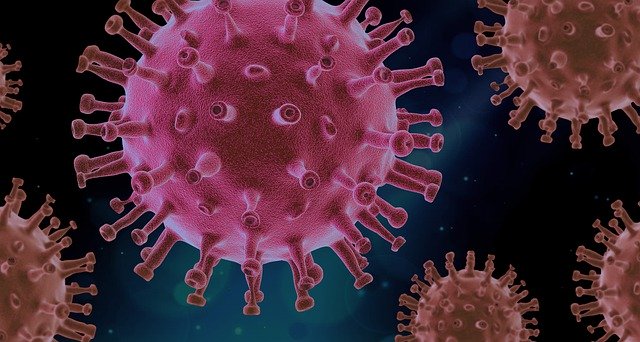| Author: | Christos Stylianides and Pierre Thielbörger |
| Date: | 26. August 2020 |
COVID-19 is a crisis of its very own kind. Comparing COVID-19, for instance, to the Ebola crisis of the mid 2010s, one difference is obvious and striking at the same time: the Ebola epidemic never became a pandemic. Very differently, COVID-19, as we now know, has shaken the European family of states to its core. In this post, we want to address four related points specifically: the role of the EU as a global leader in the global COVID-19 response; COVID-19 as a challenge to ‘solidarity’ between EU member States and with a view to non-European States; the EU’s institutional responsibility for the pandemic; and COVID-19 as a crisis for the EU in a broader sense.
Global Leadership
The EU is the biggest humanitarian donor globally. It has by now also taken a leadership role in the global COVID19 response. The successful donor pledging conference initiated by the President of the European Commission, Ursula von der Leyen, that raised 7,4 billion Euro and the EU Communication on a Global Response to COVID-19 demonstrate this. Indeed, common European responses in times of public health crises are essential. Ebola is a good proof for this claim. By taking the political initiative to facilitate the crucial regional cooperation of the three affected countries in West Africa (Sierra Leone, Liberia, Guinea), by establishing a European Medical Corps back in 2014 and by deploying European medical teams with doctors from different EU member states, the EU contributed considerably to preventing the Ebola epidemic to spread further – even if it is also true that almost all actors initially reacted rather late in the Ebola crisis inclunding aid agencies the UN, donor countries and, of course, also the EU.
In the COVID-pandemic, the EU must make sure that it continues to live up to its humanitarian responsibilities and commit to further financial investments in humanitarian action that confirm its leadership role – but also its solidarity with the global south. Against the backdrop of the indirect and longer-term effects of the measures against COVID-19, it will also be important to adapt the nexus approach that was actually developed in the context of armed conflicts and fragile states in order to promote the link between humanitarian action, peace and development to this new context, and make sure that aid instruments are flexible and complementary.
European Solidarity IN NEED
In contrast, the EU’s internal measures to tackle the health emergency in response to COVID-19, in particular in the initial stages, were rather coy. When Italy activated the Union Civil Protection Mechanism on 26 February 2020 requesting help, other Member States stayed silent. It is true that the Commission immediately sat down to adapt its legal bases in order to coordinate management of stockpiles of medical equipment, like ventilators and masks. But these revised rules applied only as from 19 March, and brought little tangible support. In addition, the Emergency Support Instrument was re-activated to apply retroactively from 1 February 2020. Nevertheless, all of it appeared as too slow a reaction to an immediate and overwhelming need. Absent a robust and convincing Union response, European States focused on national responses, incoherent and fragmented, rather than a common European response, as a compliment to national actions.
Solidarity is more than a naive aspiration. The European treaties themselves stipulate ‘solidarity’ for its members. Article 222 of the Functioning of the European Union (TFEU) contains a solidarity clause that can be invoked if an EU state is a victim, inter alia, of a natural hazard (like a virus outbreak). The states are then obliged to act jointly in a spirit of solidarity and to assist member states who ask for help. Germany had early onwards in the COVID-19 crisis suggested to make use of this clause, but it never officially happened. (Even if it had been triggered, with all the member states affected, its practical use remains, of course, hypothetical). Regardless of Art. 222 TFEU being triggered or not, the question whether member states showed enough solidarity to the most affected European States, like Italy and Spain, is a painful one for them. The President of the Commission Ursula von der Leyen apologized before the plenary of the European Parliament for a lack of solidarity of the EU with Italy in the early days of the crisis. We agree.
One might add that solidarity beyond its legal meaning in Art. 222 TFEU should not stop at the borders of the EU. For a global leader, the EU must also display such solidarity to its global (non-European) partners – which is currently lacking dramatically behind. EU solidarity is also needed with the Global South.
The EU’s Institutional Responsibility
But, in how far then is the EU really to blame for this lack of response among member states? According to Art. 168 TFEU, the EU can only complement national policies and encourage cooperation in the field of public health. The EU thus only has a supporting competence. True power in the field of public health lies with the member states. The EU can foster cooperation and make recommendations. Ultimately what matters, is the preparedness of member states to act on these recommendations. In light of COVID-19, a competence shift appears rather appropriate, if not necessary, in times of pandemics. Such competence shift is at the same time not likely in the near future. The national welfare state is an integral part of national identity. Given the high costs associated with it, a further transfer of competences (requiring Treaty change) is not to be expected. It remains crucial that the EU makes the most of its given role and its existing instruments (such as rescEU) in this difficult situation – as history tells, the EU can make a real difference, as it did during the previous Ebola crisis. And we must not underestimate the political clout that the EU has: in this sense, the EU can achieve a lot even in fields where it does not have exclusive or shared competences.
COVID-19 as a crisis for the EU in a broader sense
Does this mean that the EU now faces a broader (legitimacy) crisis beyond the field of public health? We believe there is indeed such a risk. Populism is on the rise in many member states. We witness that the “foreign virus”, as it is sometimes dubbed by populists, is used to increase xenophobia and strengthen sentiments of nationalism. We also have to note unprecedented restrictions of fundamental rights in almost all member states. Travel restrictions, curfews and restrictions on freedom of assembly go hand in hand with significant changes in parliamentary and judicial procedures. Oftentimes these restrictions rest on unstable legal grounds that were not made for the case of a pandemic – a scenario to which they are now nonetheless applied. In many cases the end of these restrictions is also not clear. The EU must continue to point to these restrictions and speak out loudly and clearly where such restrictions are too intense, where they last longer than required or where they are even only misused for other political purposes. At least since the EU Charter on Fundamental Rights has become part of primary EU law in 2009 with the Lisbon treaty, the EU has become a Union not only of States, but a Union for its citizens. The expectation to the EU is then not only to facilitate public health. It is equally expected to promote fundamental rights – mainly within the EU Members States, but, as we pointed out for the case of solidarity above, also on a global scale.
The best way forward for the EU to maintain its legitimacy in a broader sense is thus not to focus on the protection of public health alone, but to take a more balanced approach. Health is an important fundamental right, in Europe but also globally, but there are others that are also challenged during the COVID-19 crisis. The EU must be a champion of all fundamental rights. In doing so, the EU has proven its resilience in the past. In its short history, it has (sometimes better, sometimes worse) managed and mastered several crises. If focusing on its core values – the social market economy, rule of law, democracy, solidarity and, maybe most importantly, fundamental rights – it can also overcome this one.
However, as discussed above, solidarity cannot stop at the outer borders of the EU. The EU must acknowledge the shortcomings of its initial response and show leadership and solidarity equal to the task at hand. The human costs of further failure to act out of solidarity would be far greater given the reduced capacity of public health systems in many states of the Global South. Global superpowers like the United States and Russia have proven to be unable or unwilling to effectively address the public health crises in their own countries, let alone abroad. Given the competition for protective equipment and ventilators seen throughout the crisis, it is clear that such a response cannot simply be financial. There seems little point to giving financial support while simultaneously driving up the cost for life saving equipment. Instead, solidarity, with a neutral examination of where need and capacity are greatest at its core, is a must. This needs to be at the forefront of any coordinated EU response to future outbreaks worldwide and, hopefully, to the distribution of a potential vaccine.
—


Christos Stylianides was European Commissioner for Humanitarian Aid and Crisis Management from 2014 to 2019. He served as the European Union’s Ebola Coordinator since 2014 after his appointment by the European Council. He was previously Member of the European Parliament, the Parliament of the Republic of Cyprus and Spokesperson of the Cypriot government. Since 2020, he is Visiting International Professor at Ruhr University Bochum.
Pierre Thielbörger is Professor of German Public Law and Public International Law and Executive Director of the Institute for the International Law of Peace and Armed Conflict (IFHV) at Ruhr University Bochum. He is President of the General Assembly of the Network on Humanitarian Action (NOHA) and Co-Convener of the Interest Group on Human Rights of the European Society of International Law.


